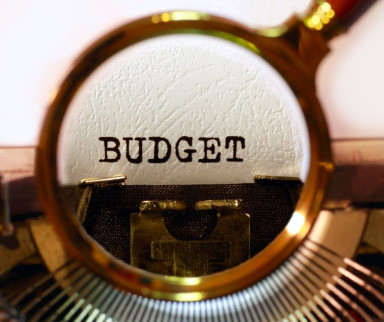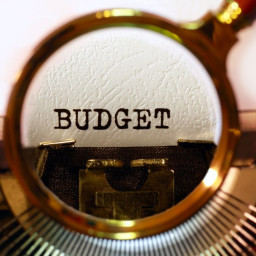
The 2025 Budget landed, and as usual, it’s a mix of helpful measures for some and “we’ll need to think about that” for others. Between pension tweaks, tax rises, and ISA changes, there’s a lot to unpack. I have summarised the changes here, which are relevant and will have the highest impact on our clients.
Freezing of income tax thresholds.
Until last night’s Budget, the income tax thresholds have been frozen until 2028. This has now been extended by the Chancellor to 2031. As your incomes are likely to rise over this period it will mean that all of us will end up paying more income tax. The freeze to income tax thresholds is expected to rise £7.6 billion in revenues for the government in the 2029-30 tax year. Coupled with an extension to freezing the national insurance contributions (NICs) secondary threshold, revenues rise to £8.3 billion.
Pension Contributions via Salary Sacrifice
From April 2029, the first £2,000 of pension contributions through salary sacrifice will remain free from National Insurance, but anything above that will now be a subject to employee and employer NI. You can still use salary sacrifice above the £2000 but you and your employer will pay National Insurance contributions on any excess of the newly introduced cap.
Pensions – General
The recent Budget introduced no changes to tax-free cash or pension contribution relief. From April 2027, unused pension funds will be subject to inheritance tax, highlighting the need for careful estate planning. In this context, pensions are now even more important as a long-term savings strategy: they offer tax-efficient growth, protection from annual income tax while invested, and the ability to pass wealth to beneficiaries in a controlled way. For individuals seeking to build retirement security and manage future tax liabilities, prioritising pension contributions remains a central element of a prudent financial plan.
Increase to taxes from property income
A large number of Haverfords’ clients will be affected by the introduction of a new separate income-tax regime for property (rental) income, especially if they own the property in personal names. The new rates (from April 2027) will be: 22% (basic rate), 42% (higher rate), and 47% (additional rate). This replaces the previous approach where rental income was taxed under the standard income tax regime.
The existing property allowance and the Rent a Room Scheme remain in place — there’s no removal of those allowances under the new rules.
For residential landlords, any finance-cost relief (e.g. mortgage interest) will now be calculated at the new property basic rate (22%) once the system changes.
Additionally, from 6 April 2027 the ordering of allowances/reliefs changes: tax-free allowances and deductions will be applied first against non-property (e.g. salary) income where possible; only after that will remaining allowances be applied to property (or savings/dividend) income.
The existing property allowance and the Rent a Room Scheme remain in place — there’s no removal of those allowances under the new rules.
For residential landlords, any finance-cost relief (e.g. mortgage interest) will now be calculated at the new property basic rate (22%) once the system changes.
Additionally, from 6 April 2027 the ordering of allowances/reliefs changes: tax-free allowances and deductions will be applied first against non-property (e.g. salary) income where possible; only after that will remaining allowances be applied to property (or savings/dividend) income.
Individual Savings Accounts (ISAs)
The Government intends to abolish the Lifetime ISA and introduce a new, simplified ISA aimed at first-time buyers. No immediate changes will take place, and a formal consultation is due to commence in 2026. If you currently hold a Lifetime ISA, we recommend keeping in regular contact with us for the latest updates as the proposals develop.
From April 2027, the annual allowance for Cash ISAs will reduce to £12,000 for individuals under the age of 65. The Stocks & Shares ISA allowance will remain at £20,000, allowing continued flexibility for those who wish to invest in the markets.
What that means for the majority of our clients with cash ISAs is that more strategic ISA planning to ensure savings strategies remains tax-efficient.
From April 2027, the annual allowance for Cash ISAs will reduce to £12,000 for individuals under the age of 65. The Stocks & Shares ISA allowance will remain at £20,000, allowing continued flexibility for those who wish to invest in the markets.
What that means for the majority of our clients with cash ISAs is that more strategic ISA planning to ensure savings strategies remains tax-efficient.
Higher Taxes on Savings Income and Dividends
The Budget confirmed that certain types of investment income will face higher tax rates in the coming years. Dividend income will increase by 2% from April 2026, while interest earned on savings will rise by 2% from April 2027. For our clients, this means that the tax efficiency of income-generating investments will be affected, making careful planning and review of portfolios increasingly important to manage potential tax liabilities and optimise overall returns.
Bottom Line
Some of these changes will affect higher earners and investors more than everyday wage earners. For most, careful planning — reviewing pensions, investments, and ISAs — will help make the most of your money in a post-Budget world.
Me and my team are here to discuss the impact of the recent Budget on your personal pensions, buy to let and investment portfolios so please do not hesitate to contact us if you have any questions.

Mark DipPFS & BsC (Dual Honours)
Haverfords Director
Me and my team are here to discuss the impact of the recent Budget on your personal pensions, buy to let and investment portfolios so please do not hesitate to contact us if you have any questions.

Mark DipPFS & BsC (Dual Honours)
Haverfords Director






